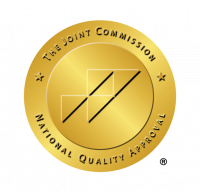Medication is a proven option for treating alcohol use disorder (AUD), and there are several FDA-approved choices available through prescription. Research1 shows that these medications reduce the urge to drink for many of the people who take them, making them an invaluable tool in fighting addiction—especially in combination with therapy or counseling.
Of these options, Antabuse (disulfiram) and naltrexone (often sold as Revia or Vivitrol) are among the best known. But the two medications are actually quite different. Antabuse was the first medication to treat AUD and is more of an old-school approach, making you sick when you drink. Naltrexone has been approved since the 90s and takes a softer approach, limiting the buzz you get from drinking instead of making you feel ill.
So, if you’re looking to reduce or stop your alcohol consumption, how do you know which will be most effective for you? Here, we’ll discuss the main differences between the two, including the methods of treatment they correspond with and how they work.
What Is Antabuse (Disulfiram) and How Does it Work?
Antabuse (Disulfiram) is an alcohol antagonist drug. It causes severe, hangover-like symptoms when you drink even a small amount of alcohol. Normally, your liver converts alcohol into acetaldehyde, then acetic acid. While acetic acid is harmless, acetaldehyde is toxic to your body and plays a role in the symptoms of hangovers.
Disulfiram works by stopping the metabolism of alcohol at the acetaldehyde stage. Acetaldehyde builds up in your body, causing you to feel sick. Feelings of illness may start almost immediately, and continue until the alcohol has been flushed from your system.
Disulfiram was first discovered as effective for treating AUD around the time of World War II. It became widely used in Denmark and was approved by the FDA in 1951 for use in the US. Until the 1990s, it was the only approved medication option for AUD. Although it can be a harsh way to tackle heavy drinking, evidence suggests that Antabuse is an effective option for some people.2


Schedule a private call with a Ria Health team member and we can help you get started.
What Is Naltrexone and How Does it Work?
Naltrexone is a prescription drug that is an opioid antagonist. Opioids imitate the effect of endorphins in the body, and naltrexone blocks these opioids from having any effect. Similarly, habitual drinkers experience an endorphin rush. It turns out that naltrexone also blocks this self-generated rush, making drinking feel less pleasurable than otherwise.
By limiting the pleasure of drinking, naltrexone undermines the reinforcement or “reward” associated with alcohol in a person’s brain. This reduces the motivation to drink, and over time can actually put an end to alcohol cravings for some people.
Naltrexone was initially approved by the FDA to treat opioid addiction in the 1980s. It proved useful in treating alcohol addiction as well, and received further approval for AUD in the 1990s. Naltrexone has established a reputation as a safe, highly effective medication for helping people quit or limit their drinking.
Antabuse vs. Naltrexone: Pros and Cons
Pros and Cons of Antabuse (Disulfiram)
If you’ve already quit drinking, have moved past the most severe symptoms of detox, and are committed to sticking with sobriety, Antabuse can help reinforce your new habits and behaviors. Your body won’t develop a tolerance to this medication, and its effects typically become stronger over time. Within 30 minutes of taking the pill, the medication begins to have an effect that can last up to two weeks in the body.
However, if you’re planning to cut back and relearn to drink in moderation, Antabuse is not the right fit for you. It will make you feel ill if you drink even a small amount of alcohol. It also doesn’t get rid of alcohol cravings, ease withdrawal symptoms, or change a person’s chemical dependency on alcohol.
One challenge with disulfiram is that the reaction between alcohol and the medication is so severe that many people struggle to stay motivated to take it. It works best with a strong support system who will make sure you stay on track with your medication. Another option is having a slow-release implant beneath your skin.
Disulfiram purposely creates an unpleasant reaction when you drink alcohol. You may experience facial flushing, sweating, vertigo, nausea, elevated heart rate, and palpitations. Additional, unintentional side effects may include headache, drowsiness, decreased libido, skin rash, and a metallic or garlicky taste in your mouth.

Pros and Cons of Naltrexone
One of the most common medications for AUD, naltrexone has a high success rate. It’s best for people who want to reduce how much they drink, or quit by tapering off. It helps treat physical addiction, limit alcohol cravings, and change your habits over time.
There are a few different approaches to taking naltrexone. One is the Sinclair Method, developed by Dr. John David Sinclair in Finland. It involves taking naltrexone an hour before drinking to block the pleasurable effects of alcohol, and it has a success rate of roughly 78%.3 You can also take a single daily dose (even if you don’t plan on drinking), or a monthly Vivitrol shot.
It’s clear that naltrexone can help reduce cravings and physical dependence on alcohol, but it can’t necessarily remove external motivations to drink. This can be especially challenging for people who drink to cope with stress, anxiety, or depression. This is one reason why naltrexone is best in combination with counseling. And although naltrexone can still help if you’ve already quit, it may be less effective.
Side effects of naltrexone may include nausea, diarrhea, fatigue, a sense of intoxication, weight loss, strange dreams, and hangover-like symptoms sometimes known as a “nalover.” These side effects often go away within a week, but for up to 10% of people they are severe enough that naltrexone won’t be a workable choice.
In brief, here is a quick summary of Antabuse vs. naltrexone:
| Antabuse | Naltrexone |
|---|
| Most effective if you have already quit alcohol and want to avoid relapse | Most effective if you are still drinking and want to cut back or taper off gradually |
| Used to reinforce new habits and help people remain abstinent from drinking | Used to help unlearn drinking behaviors, leading to either moderation or abstinence |
| Intentionally creates severe, hangover-like symptoms; may also cause headache, drowsiness, skin rash, and decreased libido | Worst side effects include hangover-like symptoms, gastrointestinal issues, and more rarely, a feeling of intoxication |
Which Medication Is Right For Me?
Of course, the most important question when it comes to antabuse vs. naltrexone is: Which is right for you?
Consider your current situation: Are you still drinking, or did you already quit? Evaluate your goals: Do you want to cut back on alcohol, or abstain entirely? You can also weigh the side effects, your motivation, and which medication you can best commit to taking.
At Ria Health, our skilled medical staff will review this type of information with you and help you make the most informed decision about the medication that can help you be most likely to achieve your goals.
You should also know that antabuse and naltrexone aren’t the only medication options. Other helpful medications include acamprosate, and off-label medications like gabapentin, baclofen, and topiramate.
Does Ria Health Offer Naltrexone and/or Antabuse?
Ria Health’s medical team offers medication-assisted treatment for alcohol use disorder. The medications we provide and support in our program include Naltrexone, Antabuse, and the other medications listed above – acamprosate, gabapentin, baclofen, and topiramate. Our medical staff can help you decide which is right for you.
Our customized treatment plans also include recovery coaching, support groups, guidance from medical professionals, and digital tools—all delivered through a HIPAA-compliant smartphone app. If you’d like to learn more about how Ria Health works, schedule a call with a compassionate member of our team today.




